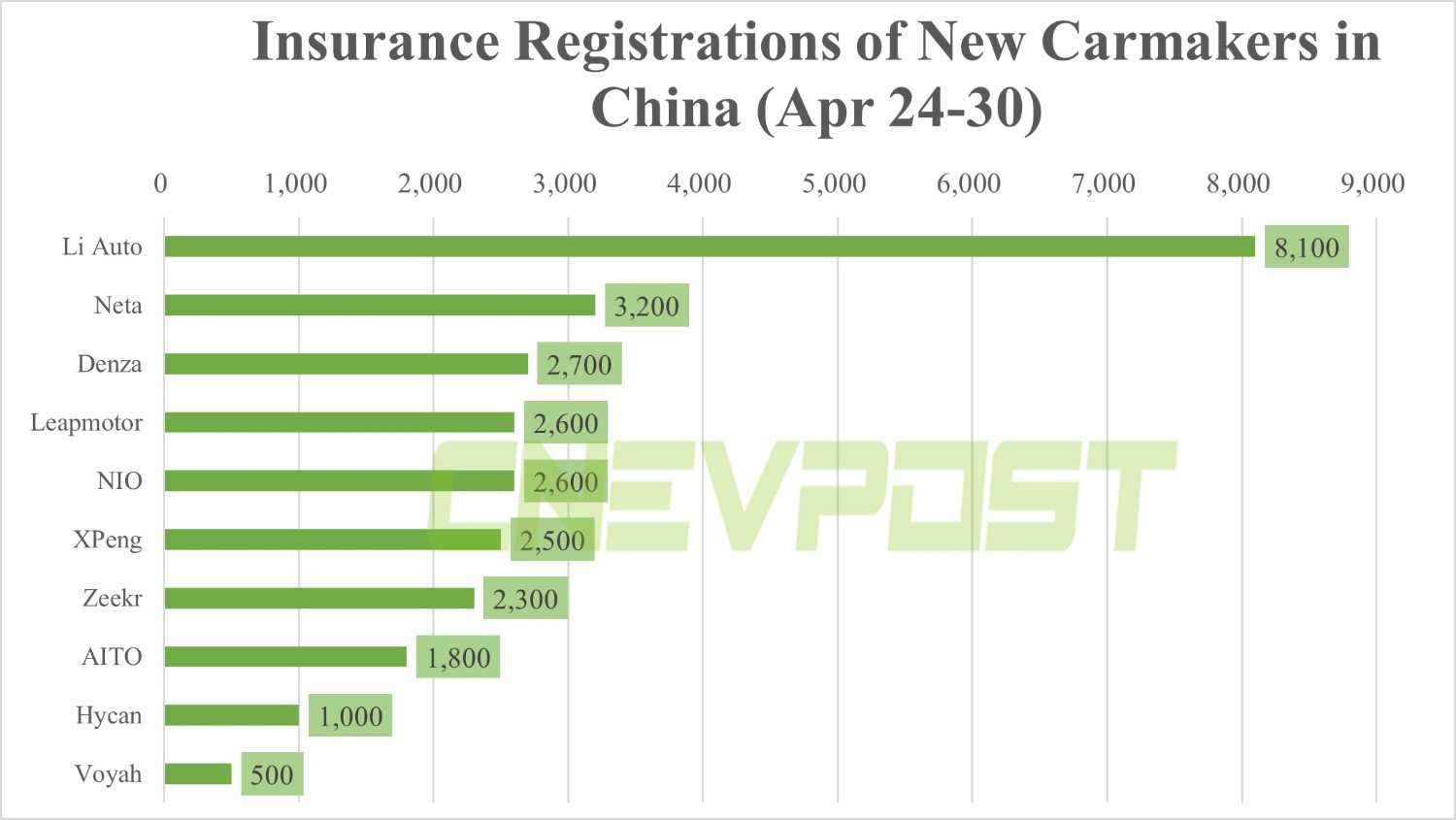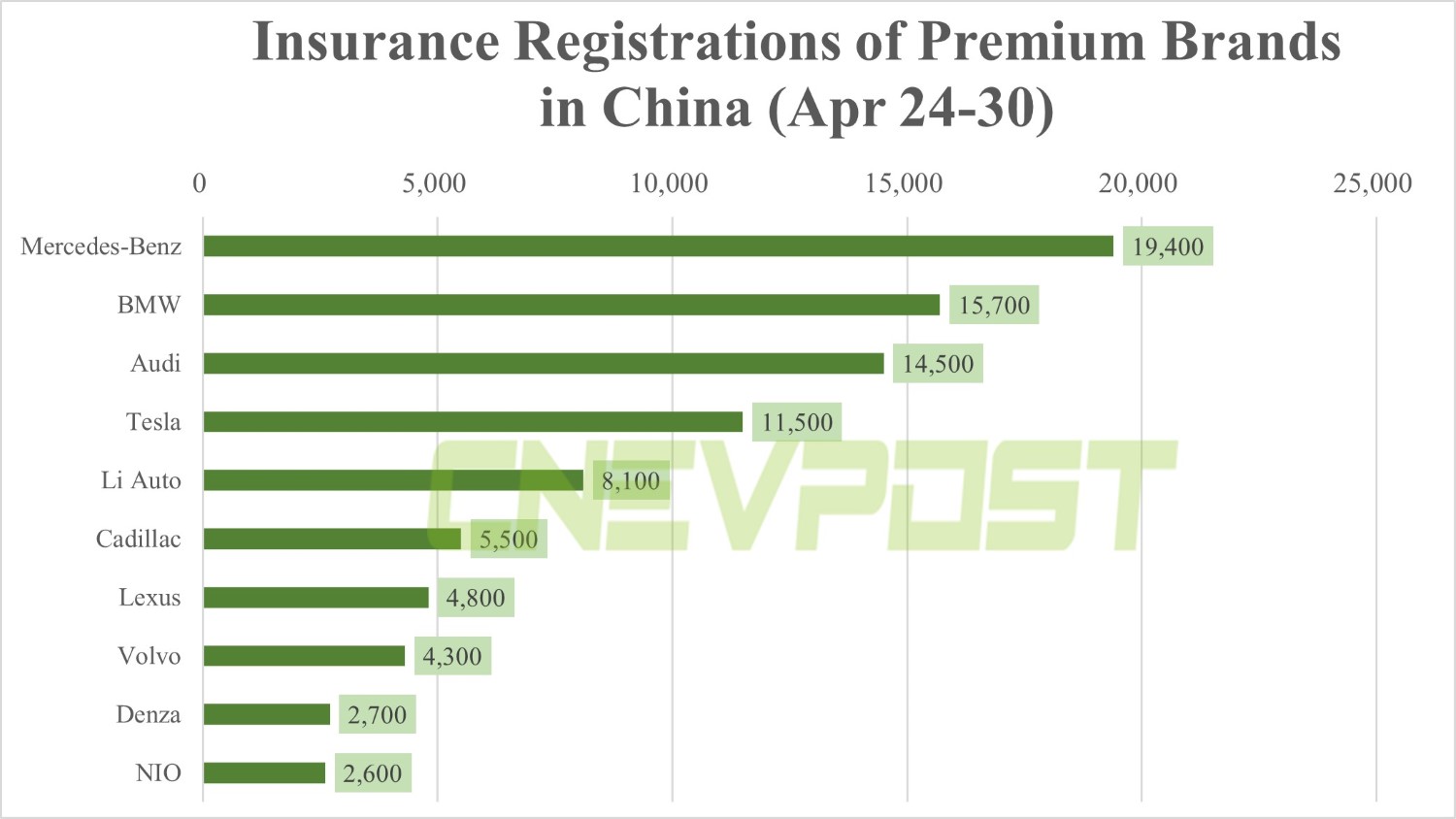Between April 28 and May 4, NIO owners drove a total of about 140 million km and 4.48 million hours.

(Image credit: CnEVPost)
Only a few electric vehicle (EV) makers, including NIO (NYSE: NIO), have previously published reports on their owners' travel data during the holiday season. Now, more and more players are doing so.
This year's Labor Day holiday in China ran from April 29 to May 3. As the holiday ended, several EV makers, including NIO, Tesla (NASDAQ: TSLA), Li Auto (NASDAQ: LI), Zeekr, and Denza, released their data.
NIO
Between April 28 and May 4, NIO owners accumulated about 140 million kilometers and drove about 4.48 million hours, according to an article posted Saturday on the company's mobile app.
By traveling in purely electric vehicles, NIO users' trips during the holiday equated to a reduction of 9,211 tons of carbon emissions, according to the company.
The largest number of users traveling in NIO vehicles came from Shanghai, followed by Hangzhou and Beijing. Among their travel destinations, Shanghai's neighboring city of Suzhou, Jiangsu, ranked first, followed by Jiaxing, Zhejiang, and Shaoxing, Zhejiang.
NIO users traveled a total of 18.1 million kilometers with assisted driving feature and used it for 226,143 hours, according to the article.
The total mileage of NIO's Navigate on Pilot (NOP) system was 6.3 million kilometers, and the more powerful NOP+ was 4.34 million kilometers.
NIO's battery swap stations provided 432,191 services during this period, with a maximum of 68,748 services in a single day.
The battery swap stations along the highways provided 138,552 free services, saving vehicle owners 104,087 hours of highway travel time, according to NIO.
These stations along highways saw a peak of 23,632 services on May 2.
NIO's 15,137 charging piles accumulated 315,455 services during that holiday, with 79.5 percent of those deliveries going to other brands of electric vehicles.
By the end of April, NIO had accumulated 327,255 deliveries.
Tesla
Between April 29 and May 3, Tesla owners drove 170 million kilometers by using the EV maker's charging network in China, it said on Weibo yesterday.
That mileage represents a carbon reduction of 10,860 tons, Tesla said.
Tesla's Supercharger stations in China are available to owners 24 hours a day and maintain an availability rate of more than 99 percent throughout the year, it said.
To date, Tesla has more than 5,000 Supercharger stations worldwide. The company has more than 1,600 Supercharger stations in the Chinese mainland, offering more than 10,000 Superchargers.
Tesla also has more than 700 destination charging stations in the Chinese mainland, offering more than 2,000 charging piles, it said.
Li Auto
Between April 29 and May 3, Li Auto owners racked up 144 million kilometers, the company said in a WeChat post on Saturday.
Of the total, 72.29 million kilometers were powered by gasoline, up 147 percent from regular days and 372 percent from the holiday last year.
Battery-powered mileage was 71.78 million kilometers, an increase of 11.9 percent over regular days.
Li Auto owners visited 368 cities during the holiday, with the most popular cities being Chengdu, Hangzhou and Shanghai.
Li Auto's AD assisted driving system drove a total of 16.47 million kilometers, or 11 percent of the milage driven.
More than 36 percent of owners of the company's discontinued Li ONE used assisted driving, and 53 percent of owners of the currently available L series used assisted driving, according to the company.
More than 69,000 owners used the more powerful navigation-assisted driving feature and drove more than 7.8 million kilometers, an increase of 186 percent compared to the usual rate.
Li Auto owners used the company's charging map to find charging piles and charge more than 680,000 kWh using fast charging.
Li Auto's supercharging stations began trial operations on April 20, with seven stations charging more than 1,000 NEVs, covering several major brands including BYD and Tesla, the company said.
By the end of April, Li Auto's cumulative deliveries stood at 335,599 units.
Zeekr
Between April 28 and May 4, Zeekr owners accumulated 54.1 million kilometers, with the longest traveled vehicle covering 5,481 kilometers, according to an article published by the company yesterday.
Eighty-seven percent of Zeekr owners drove less than 1,000 kilometers in that period, 11.2 percent drove between 1,000 and 2,000 kilometers, and 1.53 percent drove between 2,000 and 3,000 kilometers.
Zeekr owners used nearly 3.7 million kWh of energy from the company's charging piles on its charging map, and to date, Zeekr has built nearly 690 of its own charging stations, covering more than 120 cities in China.
As of the end of April, Zeekr's cumulative deliveries stood at 101,283 units.
Denza
Between April 29 and May 3, Denza D9 owners drove a total of 11.12 million kilometers and logged 292,974 hours, it said in an article published Saturday.
Of that total, 4.92 million kilometers were driven on fuel and 6.2 million kilometers on electric power.
Denza D9 owners have used assisted driving system a total of 32,493 times during the period, according to the article.
Denza currently has only one model, the D9 MPV, on sale, and it already started pre-sales of the new SUV N7 at the Shanghai auto show last month.
As of the end of April, Denza's cumulative deliveries since the rebranding stood at 44,491 units.
NIO sees over 430,000 battery swap services during Labor Day holiday in China
The post Labor Day holiday: How do NIO, Tesla and Li Auto's user travel reports compare? appeared first on CnEVPost.
For more articles, please visit CnEVPost.














